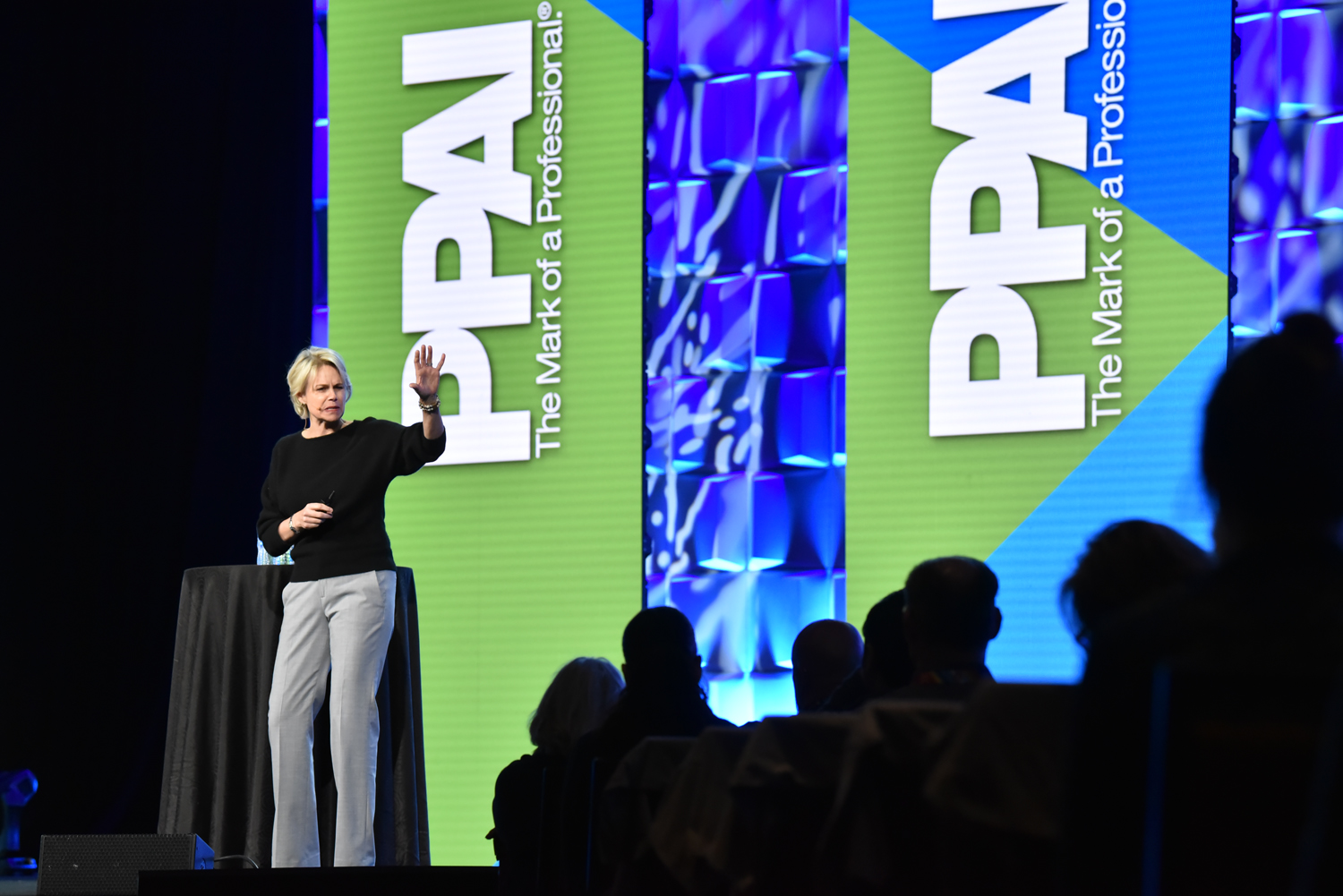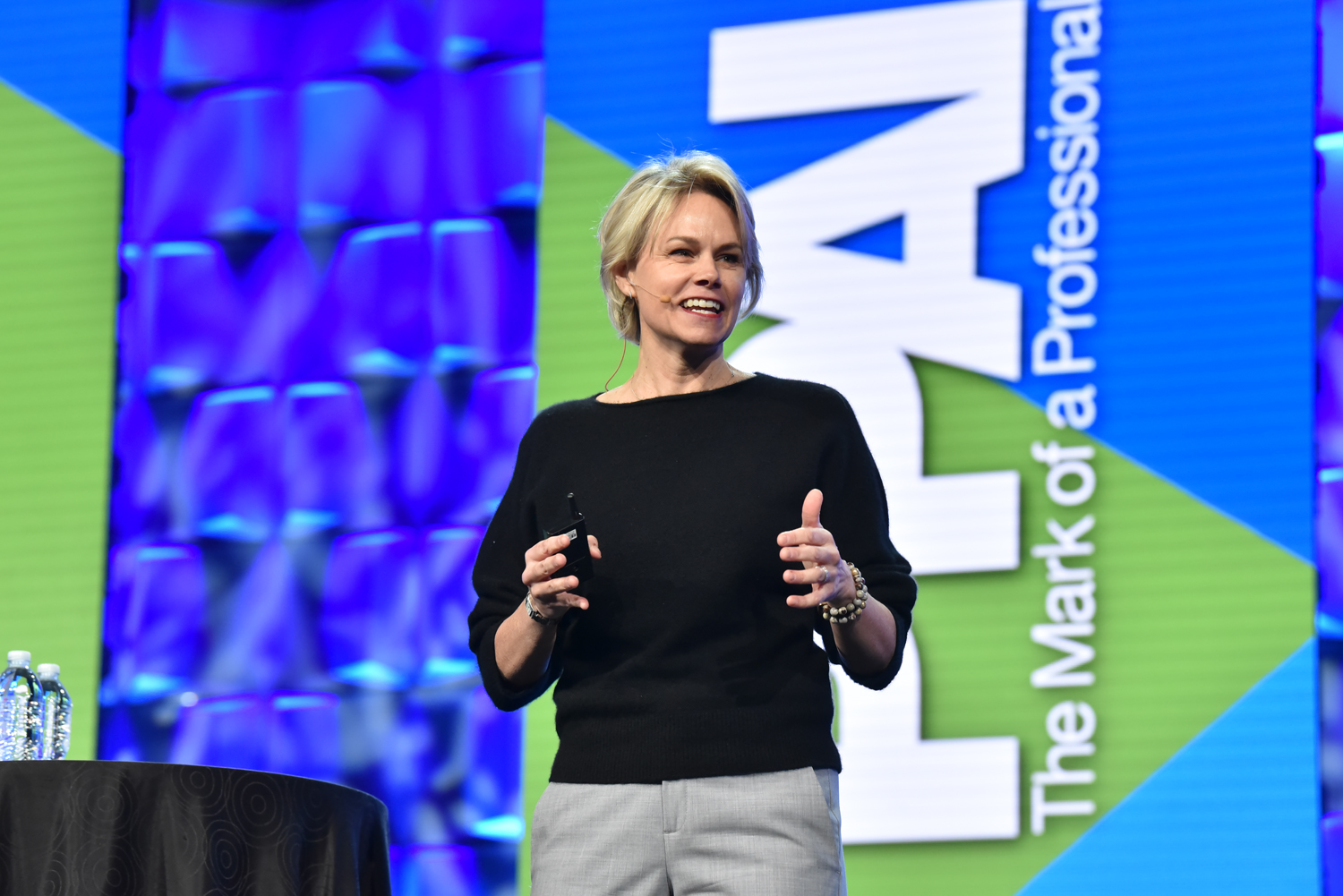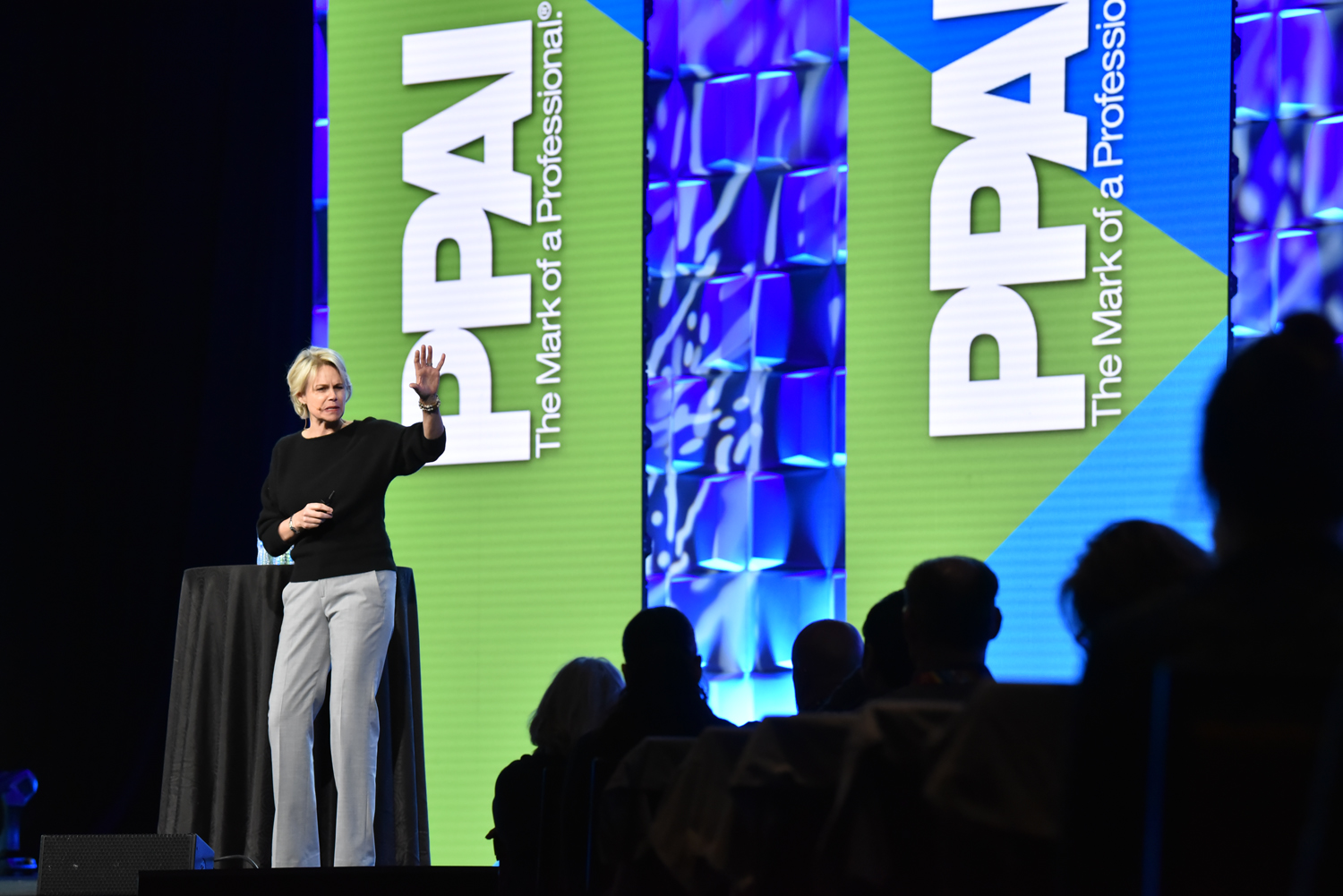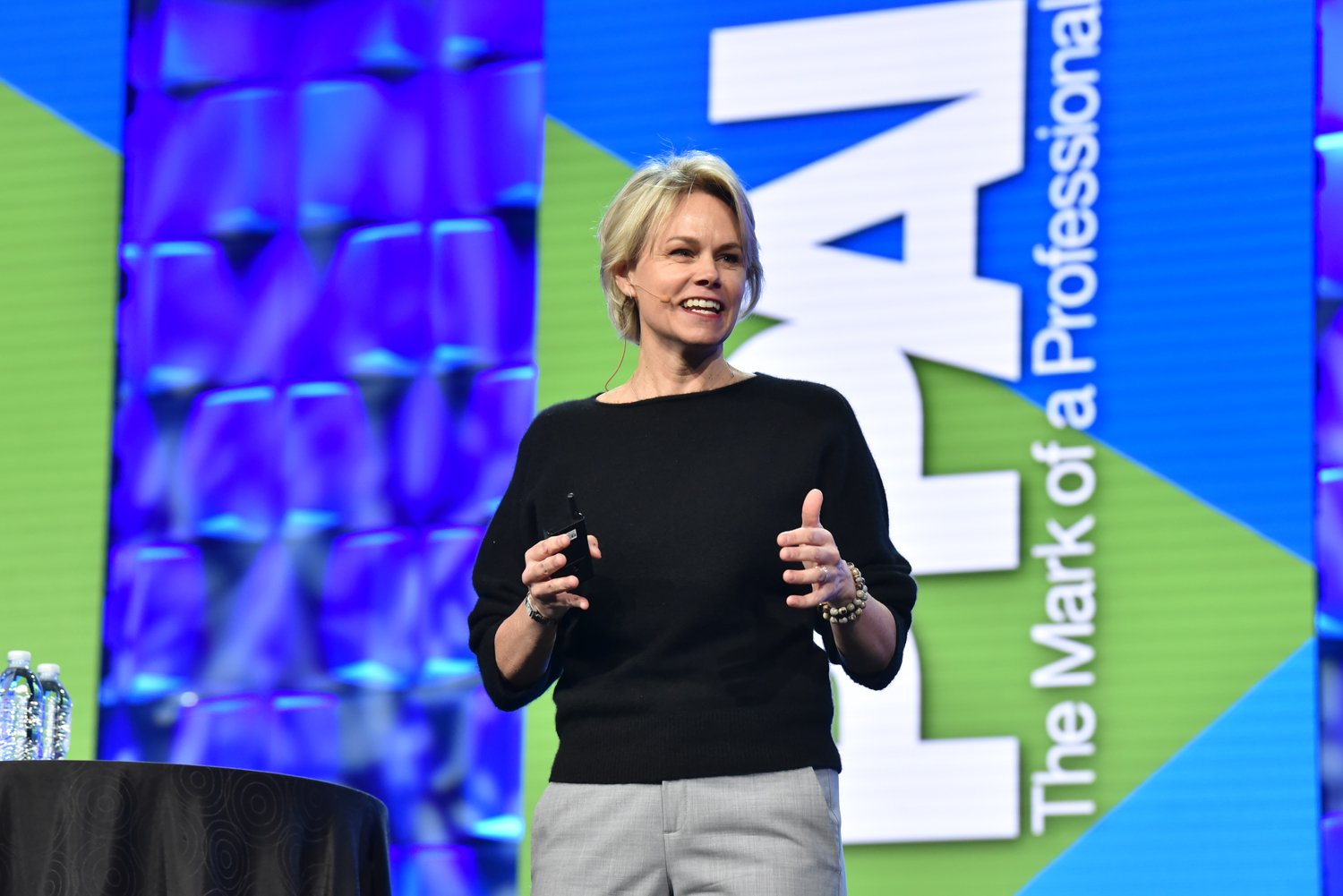Expo Keynoter Underscores The Secrets To Strong Relationships
There’s nothing more important to a business than relationships. For promotional products professionals, relationships are everything—they’re the catalyst that brings the industry together, and the gateway to strengthening and maintaining connections with clients. Without relationships—genuine relationships that require nurturing—in the promotional products industry, we wouldn’t get very far. This sentiment—and more—was the topic of discussion during Tuesday’s PPAI Expo general session, “Unleash Your Potential,” featuring Molly Fletcher, a former sports agent, dubbed the “female Jerry McGuire” by CNN and the founder of Molly Fletcher Company in Atlanta, Georgia.
Fletcher’s professional journey has been rooted in relationships. Fletcher, who has authored five books—her newest one is Fearless at Work: Achieve Your Potential—recalls her early days spent navigating client relationships and bringing people together for collective gain. After graduating from Michigan State University and moving back in with her parents in East Lansing, Michigan, she decided to move 700 miles south to Atlanta, Georgia, alone, to pursue her dream job of being a sports agent. When her parents understandably asked what she planned on doing for work in the meantime, she expressed interest in becoming a tennis instructor. After relocating, Fletcher learned that tennis was big in the Atlanta area, and it was a fairly common practice, at the time, for tennis instructors to offer their services at places like apartment complexes, in exchange for a reduction in rent. Fletcher approached the apartment manager and offered her services, but learned the complex already had a tennis pro working there, and not only had he been there for the past six years, but they were very happy with him. Nonetheless, Fletcher persisted—and soon after, serendipitously and as perfect timing would have it, the current pro was relocating and there was an immediate opening for a new tennis pro. Fletcher got the job. Fletcher’s determination to succeed as a tennis instructor was just one example of how she used her skills and connections to reach her goals.
But outside of teaching tennis, which she did at the complex for the next nine years, she learned there was a pizzeria across the street from the complex, which was home to hundreds of young professionals. She approached the owner and suggested he donate 15 to 20 pizzas, once a month, to the apartment complex for residents who played tennis there. In exchange, she would insert coupons in a monthly newsletter that would be distributed to all of the residents. Fletcher also created the newsletter, and in the first, she wrote an article with tennis tips. She also reached out to a friend who worked with a promotional products company, who donated products to distribute to the residents there to increase awareness of the new tennis pro and the classes offered. The complex manager was more than pleased with Fletcher’s ideas and the newsletter became a success. It’s crucial that as business owners and professionals, we have the courage to close the gap between our clients and ourselves, she said—and the only way to do this is with relationships.
There’s a noted difference between communication and connection, Fletcher said. Communication can be back and forth emailing, phone calls about an upcoming order and information about pricing and lead time. But connection is remembering that each person you work with is human, has likes and dislikes, preferences and concerns, and although you may be connecting with people in a professional setting, they’re still people, nonetheless. “Do not be strictly transactional,” she said. “Be relational.”
Fletcher also touched on another experience she had years later. She learned she was unexpectedly three months pregnant with twins when her eldest daughter was just five months old. Fletcher received the big news, which came as a shock, just 30 minutes before she was scheduled to meet with a coach, who later became her client. She was overwhelmed with the news and suddenly felt inclined to share it with him, but then she remembered to be where her feet are: the coach was busy and had limited time, and the meeting, she said, wasn’t about her big news, but it was about discovering solutions for her client. “It was a moment that I realized it’s so hard, in our own ways, to be present,” she said. “But here’s the thing: people can tell.”
Fletcher closed the session by touching on how, as busy people, we need to remember to focus on our clients, and the connections we share with them, above all else. “When we wake up every day and make it truly about the people we serve,” she said, “We can do some amazing things.” She also relayed back to the topic of presence and being genuinely in the moment with customers. To do so, she offered four suggestions: create one daily ritual that requires your attention, prioritize face time with clients, recognize your clients’ important moments and, as mentioned, be where your feet are.







